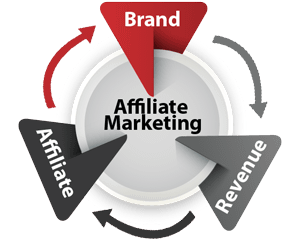
It is no surprise that search engine optimization is a vital step for newly launched businesses. But for growing SMBs, being diligent about maintaining your SEO is just as important.
SEO might not be at the top of your priority list when it comes to preparing for the holiday selling season. Keep in mind that no matter the size of your business, SEO is never a task that is fully complete. Instead, SEO requires periodic attention over time with calculated trial and error. Use this approaching holiday season as a reminder to revisit and re-optimize your search engine strategy.
To earn higher page rankings and conversions when it matters most, start the process well before the holiday season. While November might be okay to whip up a last minute blog post, it can take a few weeks for Google’s bots to scan your site and for you to fine tune your keywords. Below, we’ve gathered a few best practices to help you start the SEO update process early and make sure your products and promotions are seen this holiday shopping season.
Analyze Where You Are
Before you start changing title tags and purchasing Adwords, analyze the current state of your SEO. Without a quick check of your organic search performance, you can do more harm than good. Explore which pages are yielding the most views and longest time on page from Google Analytics. Cross-check these results with your top performing keywords. This will give you a good idea as to what you are already doing well.
Remember, there are certain pages, such as your homepage, that are most likely already doing well. Tweaking your keywords might not impact your overall performance too much. Instead, focus on optimizing pages that are performing in the middle of the pack.
Know Your Keywords
You already have a list of top-performing keywords for your business. However, forming a list of holiday-specific keywords will help your business attract new customers searching for the perfect gift. Dig into Google Trends reports to discover which search terms customers are frequently using and update your keywords for these changes.
Write Now, Not Later
Once you have a list of holiday-specific keywords, it may be tempting to push off your blog writing until later in the holiday season. But, the longer you wait to put those keywords into action, the less impactful they will be on your store’s search success. In fact, it takes time for Google to scan your changes.
According to the 45-Day rule, publishing your content a week before a major holiday will allow you to engage in 50% of the search engine traffic, while starting 45 days in advance will help you participate in over 90% of the search traffic.
Hint Toward What’s to Come
In the theme of starting early, create holiday preview pages to tell your loyal customer base what is coming soon. Even if you haven’t completely finished your online merchandising for your holiday line, post a few buzzworthy styles as a sneak peak.
Not only will this excite your customers, but it will work in favor of your SEO. Use “Coming Soon” pages to start building links and begin ranking on relevant holiday search queries. Better yet, the Google bots like to see well-ranking pages that are consistently updated. So, launch with a few items or a “Coming Soon” message, and then update it as regularly as you can during the holiday season. This will boost traffic to that page and ultimately drive increased holiday sales.
Be Smart with Your Links
SEO is all about links, both internal and external, that increase both the credibility of your content and the chance that people will find your page. As you take inventory of your existing SEO performance, make a note of which pages are already doing well. As you strategize where to include internal links, use these landing pages to display holiday promotions and optimize exposure that already exists.
To build up your external links, use the holiday season for blogger outreach. The more trusted voices you have talking about your product, the better your product pages will perform on search engines.
Create Holiday Gift Guides
Gift guides do particularly well because they offer a wide variety of products shoppers are likely searching for or will share on social media. In addition, prominently advertised gift guides decrease the number of clicks between your homepage and your holiday product pages. This is a plus for SEO bots scouring your site, as well as a helpful tool to convert shoppers who search by general terms such as, “best holiday gifts for girls” or “top technology gifts.”
Be sure to use a gift guide technology or create a new webpage rather than launching a micro-site. The difference here is in where this page lives:
- Webpage: www.yourstore.com/holiday
- Micro-site: holiday.yourstore.com
This might not seem like a big difference, but for SEO it is huge. The first link will reap the benefits of all the SEO your site has already gained. The second has to start from scratch. Opt for webpages, not micro-sites.
Revisit Your Load Times
Every one-second delay in page load time decreases customer satisfaction by 16% and conversion rates by 7%. Use the holiday season as a reminder to revisit the load times of your top landing pages. In Google Analytics, visit the Site Speed tab to monitor load times and cross check this with your page performance.
Your photos could be the culprit if you site load time lags. Remember to save all images for the web (you can do this in Photoshop) or use a converter tool to compress large images. TinyPNG and jpeg-optimizer are good options.
Aim Toward Google Shopping
Getting your product feed into Google Shopping is a sure way to gain visibility from potential buyers and improve customer loyalty. Not only do Google Shopping feeds have a higher conversion rate than other forms of PPC, but they also have a lower cost-per-click.
Don’t Forget About Mobile
Last year, 28% of all holiday retail sales were influenced by shopping-related mobile searches. Similar trends have continued this year as omnichannel selling becomes the standard of the retail industry. Therefore, it is more vital than ever that businesses adhere to Mobilegeddon’s responsive mobile site mandate for this holiday season.
Indeed, 75% of shoppers use their mobile devices in-store to research products while 25% make purchases on their smartphones in-store. And, as on-the-go shoppers will be in a hurry to complete their shopping, local SEO will influence whether your business appears at the top of their mobile search. Before the holiday season begins, be sure your store is ready for mobile shoppers.
There is no denying that the holiday season is the busiest time of year for both online and brick-and-mortar retailers. However, don’t use this as an excuse to let your SEO performance slip through the cracks. Set aside some time to revisit how your website is ranking on Google and if your mobile store is ready for the holiday rush. If your organic search results are not what you would hope, remember that the earlier you start making updates, the better.
Digital & Social Articles on Business 2 Community(126)
Report Post





